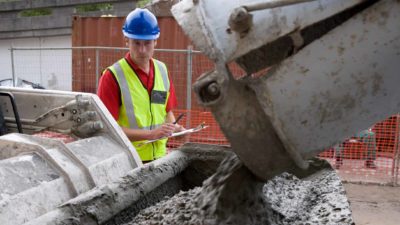Threats by China's regulators sent the iron ore price crashing, but can the Asian giant really control commodity prices?
The market doesn't appear to believe it can. ASX iron ore shares are trading mostly higher along with the S&P/ASX 200 Index (Index:^AXJO) this morning.
But should ASX investors be worried? After all, you only need to see what happened to the A2 Milk Company Ltd (ASX: A2M) share price and Treasury Wine Estates Ltd (ASX: TWE) share price when China gets upset.
ASX mining shares staring down China
This doesn't appear to faze the Fortescue Metals Group Limited (ASX: FMG) share price. Its shares jumped 1.1% to $23.05 at the time of writing.
The BHP Group Ltd (ASX: BHP) share price and Rio Tinto Limited (ASX: RIO) share price are also defying expectations for a weak opening today.
Sledge hammer to crack a walnut
This might be because most of the tools that China could use might not have a lasting impact on commodity prices.
Our biggest trading partner wants to derail the record bull run for many commodities as it sees surging prices as a threat to its growth. It doesn't help that China has a disdain for our political leaders as well.
Given this backdrop, it's still useful to know what the Chinese could do to pour cold water on ASX mining shares.
Tightening liquidity and stimulus
UBS lists a couple of levers that Chinese authorities could pull to control commodities, but each have consequences.
China could tighten liquidity through monetary controls or curb the property market. That will lower demand for commodities, but it will also hurt its growth. Even the analysts at Bloomberg don't think this outcome is likely.
Other broad based tactics have unintended consequences
Another option is to encourage an increase in local supply of commodities. But this will conflict with the government's environmental agenda, noted UBS. Furthermore, China doesn't have iron ore resources of any significance.
The third option is for the Chinese to introduce a price ceiling. It did that for coal and it's trying to do that for iron ore by warning steel mills and speculators to behave or else.
But history shows that artificial price caps don't often work and the outcome from such a gamble is uncertain.
More specific control measures
There are other more specific options that China could pursue. One is to restrict steel exports. That will slow its local steel industry, and in turn, lower demand for iron ore.
"But in our view, China steel prices are being pulled up by record international steel prices (US HRC >$1,500/t) & export premiums," said UBS.
"With restocking likely to continue to drive strong ROW [rest of world] steel demand near-term, lower China exports could see ROW steel prices lift further."
Finally, China could sell commodities from its strategic reserves. The threat of extra supply would be enough to dissuade speculators from bidding up the price of iron ore.
However, there is debate on how long the Chinese can hold the gates with such a tactic when the global demand outlook is this positive.









